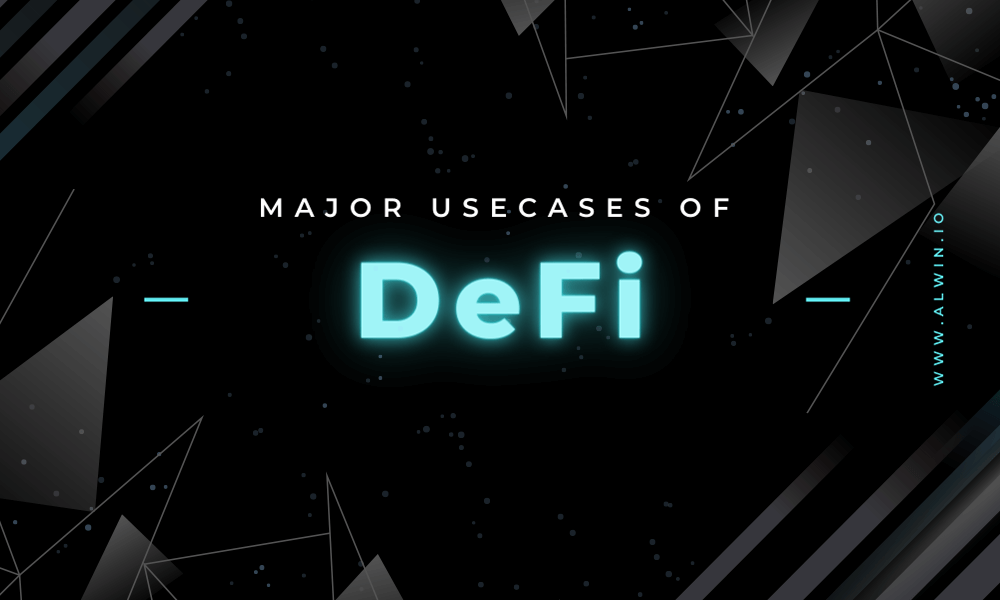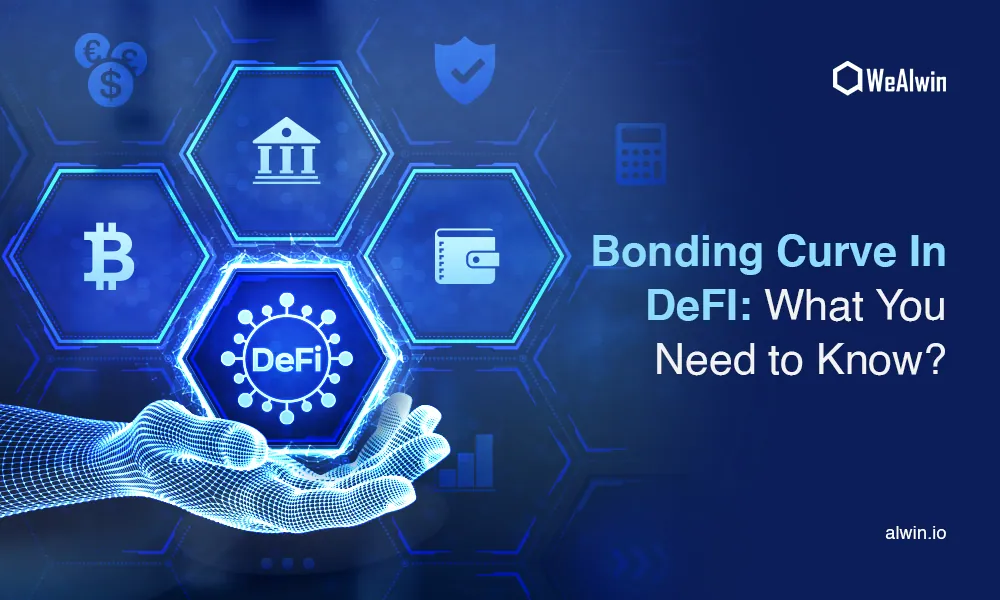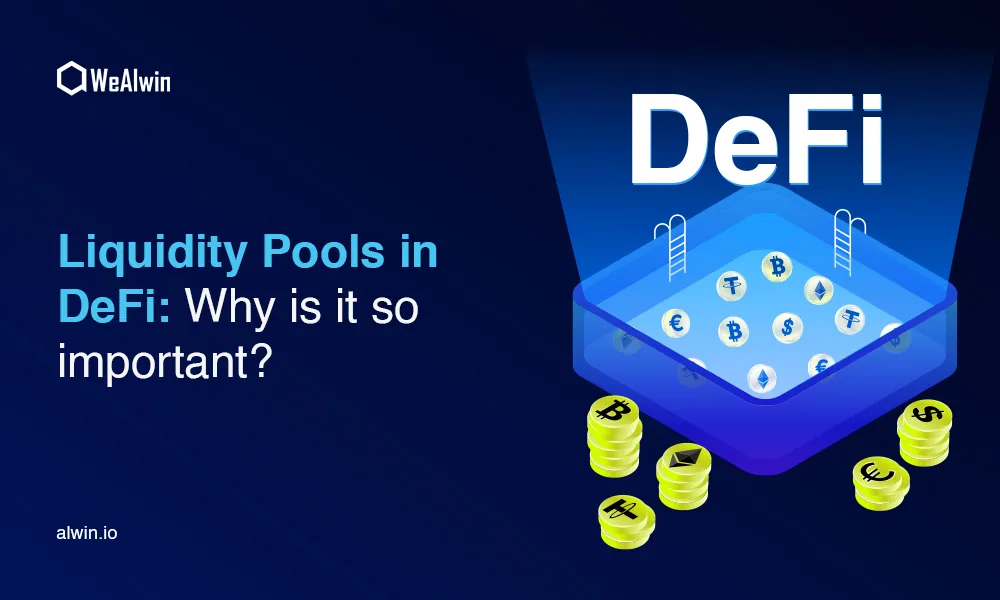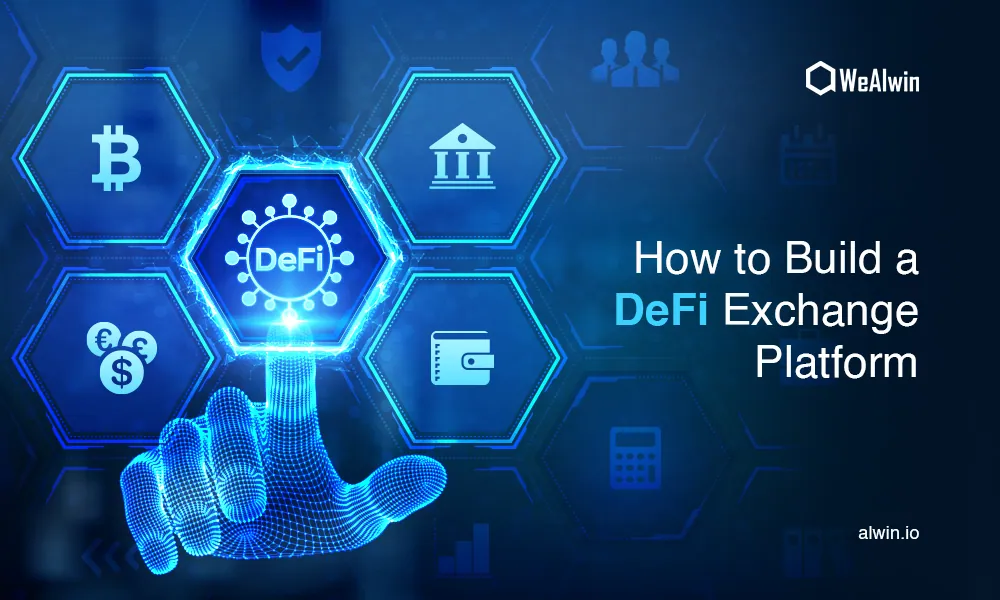
DeFi, or Decentralized Finance, is an ecosystem of financial applications built upon blockchain networks. The DeFi movement intends to create permissionless, open-source payment protocols. Decentralised finance has witnessed staggering growth in 2020.
Key focus
- Decentralized finance is a rapidly emerging sector that promises to disrupt the traditional financial industry with blockchain-based tools and services that mimic banking, investing, and trading services.
- With DeFi, you can manage your own digital asset finances without relying on centralized financial institutions, potentially helping to bank the unbanked and unlock new revenue streams but it also has its fair share of potential risks.
- With 100,000 users, the industry has grown considerably in the last year.
- Now, most applications of DeFi have accumulated on the Ethereum blockchain. Ethereum is the second-largest cryptocurrency platform in the world, and has gradually become more compatible with DeFi than the Bitcoin platform.
- This is because Ethereum makes it simpler to build different types of decentralized applications beyond Bitcoin’s basic transactions.
Primary Features of Defi
Permissionless:
Defi system’s are permissionless which allows anyone to access the application present on a Defi protocol and trade the network without the need of anybody to sanction it.
Open Source and Transparent
Defi system’s code is open-source. So that the code is visible to every user, which allows everyone to audit and verify its security and functions. All users are identified by their digital signatures, so the transparency of the network doesn’t tamper with the users privacy. Also, open-source ensures Defi’s credibility.
Interoperability:
Defi is easily compatible with the integration of other applications, so Defi has the scope to expand, offer new financial services, and also develop new financial marketplaces.
Accessibility:
Anyone who has a computer/smartphone and an internet connection from any corner of the world can obviously join a Defi network. This definitely gives decentralized financial systems the hand over traditional banking systems.
Let's discuss some of the use cases of Defi
Open Lending Platforms:
Open Lending Platforms is one of the most common use cases for Defi. They are usually decentralized applications(DApps) that allow you to lend your digital assets to other users or borrow digital assets from other users. To protect the borrower, collateral should be maintained above a certain value and borrowers need to deposit collateral substantially more than the loan amount. If this fails, the collateral will be sold to the lender only if the collateral falls below a certain threshold value, known as a loan-to-value ratio(LTV).
Trading:
One of the basic functions of trading is providing a new and secure way behind a decentralized financial system. A range of trades happen within the Defi space across decentralized exchange platforms, liquidity pools and decentralized marketplaces. This is initiated from derivatives trading to token exchanges to margin trading to token swaps.
StableCoins :
Stablecoins are one form of digital asset that have their value at the level of another asset in order to reduce volatility and keep the price as stable as possible. These assets can be pegged to fiat currencies like the US dollar, Euro, or to other assets like gold or a mixed basket of assets like Facebook’s Libra Stablecoin. Stablecoins are popular among lenders, borrowers, liquidity providers, and traders due to their stability, hence they are weaved into the Defi space.
DEXes/ Decentralized Exchanges:
DEX is the most known application of Defi. They allow users to perform peer-to-peer transactions between themselves. These are digital asset trading platforms that can operate without a centralized authority. DEX provides increased liquidity, safeguarding all personal data of users and their funds against threats of hacking. DEX allows physical assets to be tokenized. Hence, the exchanges will be swifter and safer compared with traditional trading methods. Defi marketplaces allow users to trade goods in a trustless manner using a smart contract based escrow system(ex: OpenSea).
DeFi derivatives:
Defi derivatives are representable for both real world and virtual assets. A derivative is a coded financial agreement that is based on the performance of an underlying entity. The entities can be a crypto asset, fiat currency, gold, stocks, bonds, etc.
The benefits of trading a Defi derivative is:
- Avoid the risks with price fluctuations by agreeing to trade at a fixed price.
- Earns profit by speculating on certain asset’s performance.
Some types of derivatives contracts are
Futures:
A crypto futures contract has an agreement to buy or sell the crypto asset at a specific time in future.
Options:
Crypto options give the holders the right to buy or sell the assets, but with an obligation to perform the trade.
Swaps:
Swaps are contracts which exchange the cash flows or liabilities that are associated with one financial asset for another by counterparties. They are customized based on the requirements of both sides.
Perpetual Swaps:
Perpetual Swaps are similar to regular futures contracts, except the expiry dates.
Yield Farming:
Yield farming is the most recent use-case of Defi. Digital assets can be locked in return for rewards which are delivered by a smart contract automatically. Yield farming projects require LP tokens which are received after providing liquidity at certain DEX, like Uniswap. These tokens can be used to mint a new token which is either sold or used.
Tokenization:
Virtual asset that is minted, issued and managed on a blockchain is the token. Digital tokens are transferred and programmed instantaneously to carry a lot of functionalities with a secure code. Tokenization is the key feature of Ethereum blockchain which means that it provides Defi platforms on the same blockchain with economic benefits. Digital tokens are becoming a secure way for users on Defi platforms to store their asset values, and trade without risks. Tokens provide exposure to other assets like physical and digital assets such as oil, gold, fiat currencies, and cryptocurrencies. These crypto synthetic assets are collateralized by tokens which are locked into Ethereum based smart contracts. Synthetic asset platforms' most popular one is Synthetix, which has $600 million locked in smart contracts
Staking:
Staking makes way for digital asset holders to gain exposure to decentralized finance. This process is to make participation in the network governance of Proof-of-Stake(POS) blockchains by delegating digital assets to a validator node or simply holding digital assets in a compatible wallet. You can earn rewards automatically with the help of staking assets. Some popular stackable assets are Tezos(XTZ), Tron(TRX) and Cardano(ADA).
Lending and Borrowing:
Defi lending platforms give loans to individual borrowers or organizations in a trustworthy manner. Since there is no third party interference required, and it makes them to earn interest in the form of crypto coins.
Some advantages Defi lending platforms offer are
- It is more easily accessible to both lenders and borrowers.
- Instantly settles the funds through smart contracts
- There is transparency in the fund flow
- It can be flexible in lending and borrowing
Through Back:
Hope so the information in this blog will be useful for you to start. Whether you look for insurance, exchanges, staking solutions, or other financial tools, you can choose a Defi platform which covers all these. Defi is being on the rise, fresh opportunities will also arise.
Develop your exchange with our experts
Have a look into our homepage


















